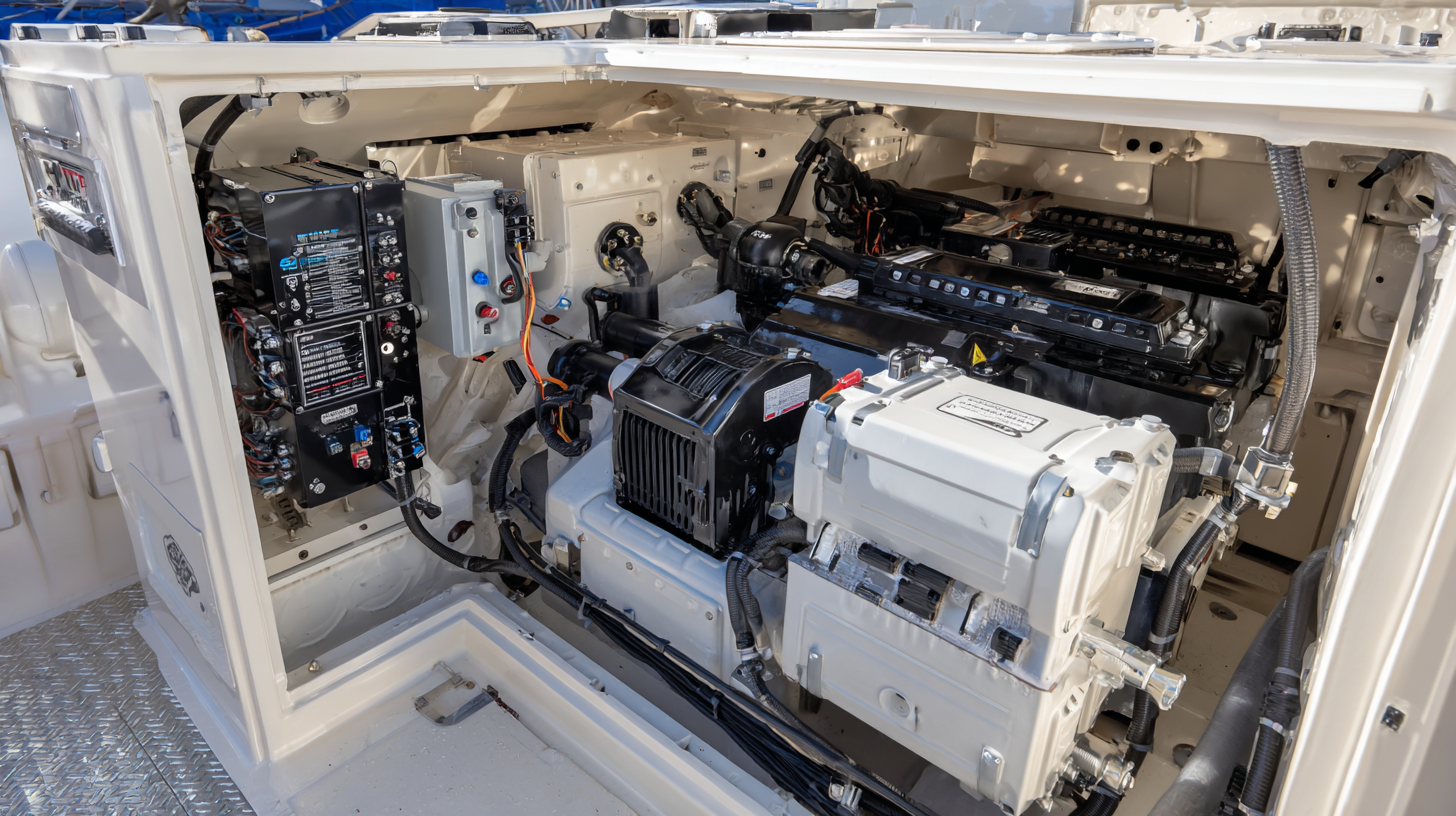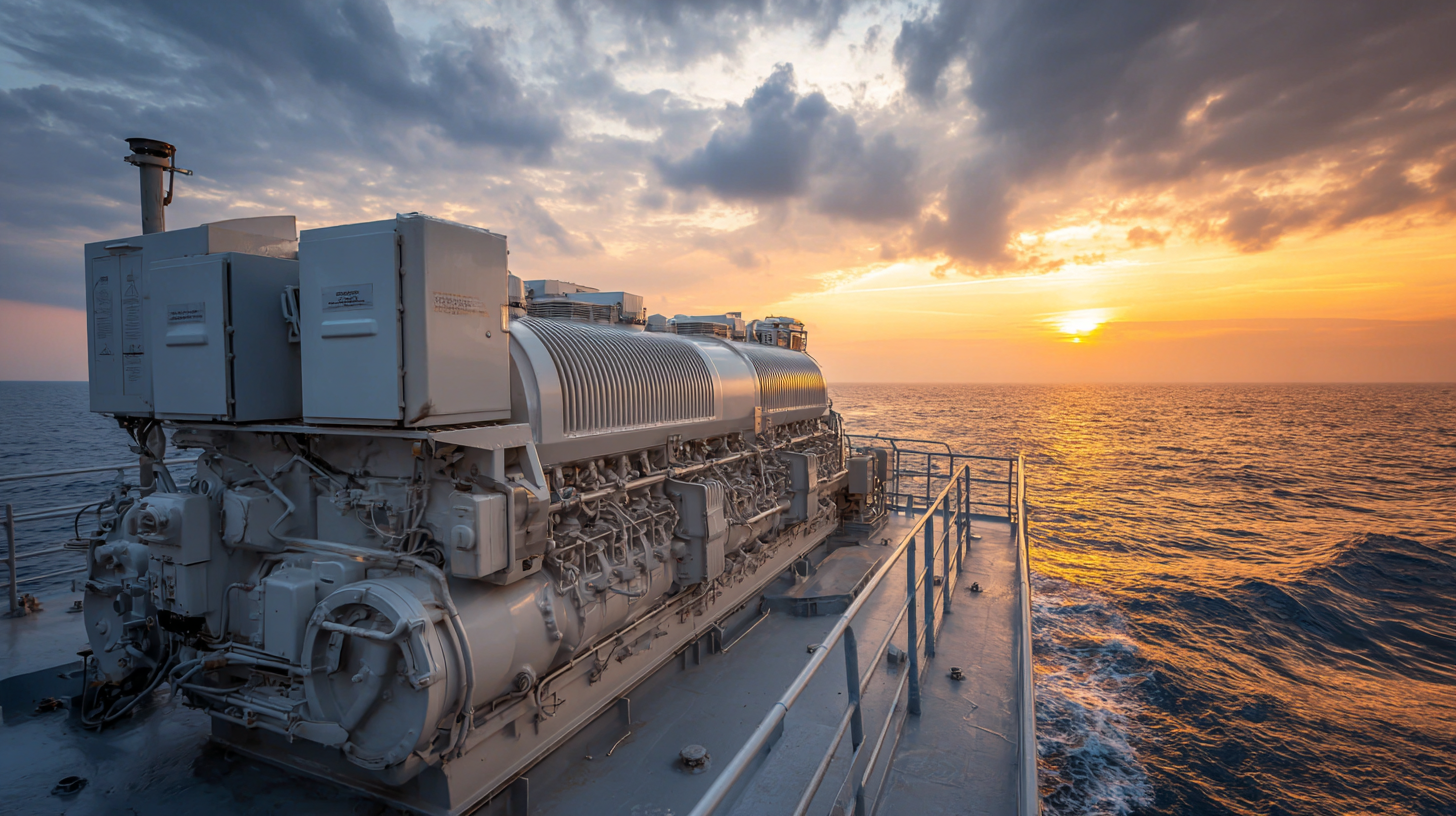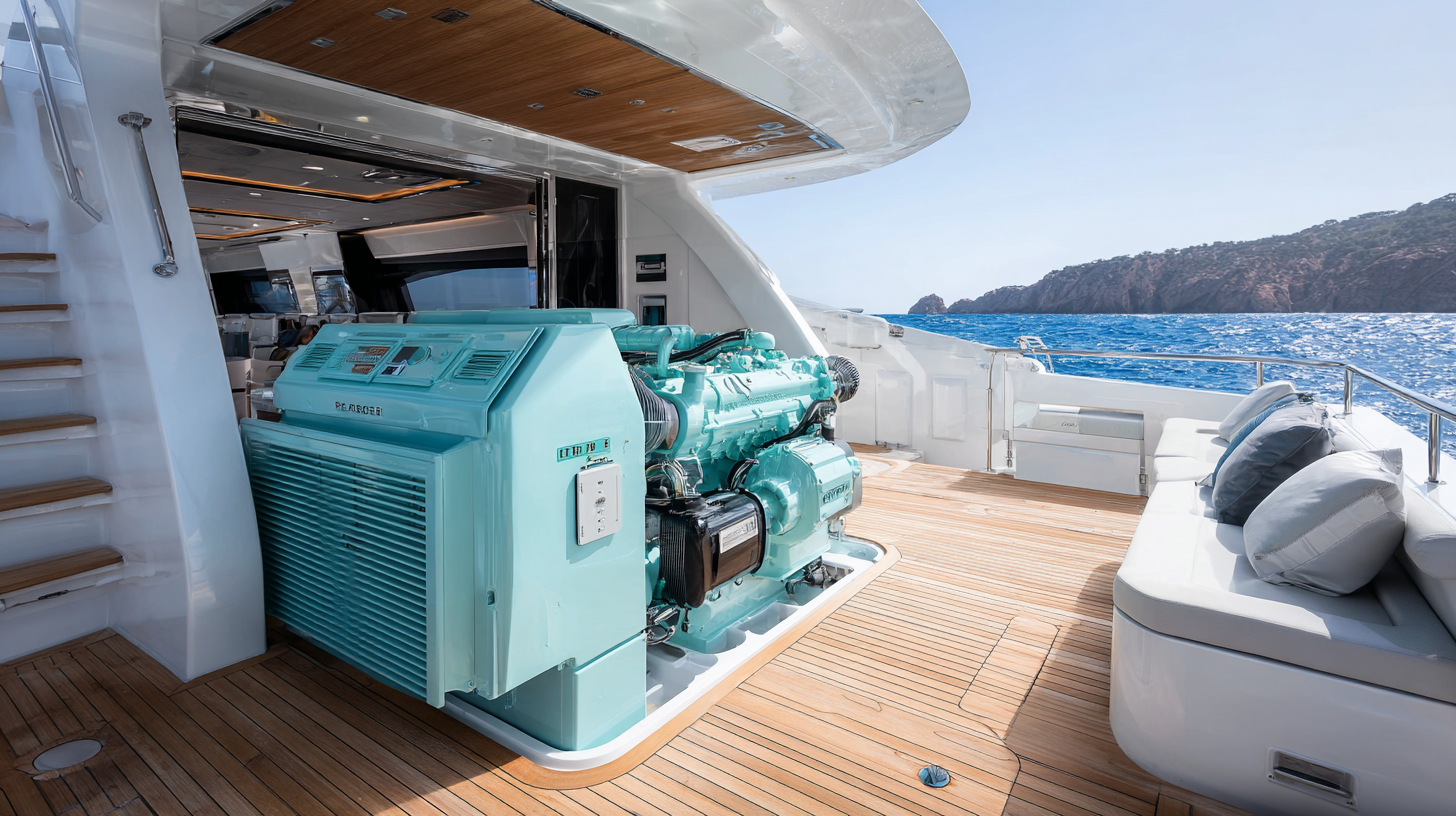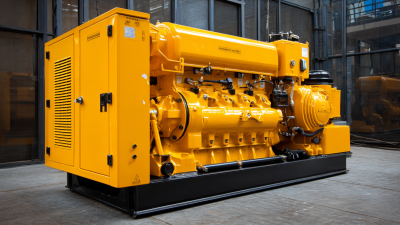
Ultimate Guide to Choosing the Perfect Marine Generators for Your Needs
When it comes to powering your marine vessel, selecting the right marine generators is crucial for ensuring reliability and efficiency. According to a recent report by MarketsandMarkets, the global marine generator market is projected to reach $2.7 billion by 2026, growing at a CAGR of 5.2% from 2021. This growth highlights the increasing demand for robust and efficient power solutions in both recreational and commercial maritime sectors. As the industry evolves, understanding the diverse options and their specifications becomes essential for owners and operators. Whether you're looking for portable units for weekend getaways or robust systems for lengthy ocean voyages, this ultimate guide will equip you with the necessary knowledge to select the perfect marine generators tailored to your specific needs.

Key Factors to Consider When Selecting a Marine Generator
 When selecting a marine generator, several key factors must be taken into account to ensure it meets your specific needs. First, consider the power requirements of your vessel. Calculate the total wattage needed for all onboard systems, including lighting, navigation, and appliances. This will help you determine the size and capacity of the generator necessary for your operations. It’s essential to choose a generator that not only meets current power needs but also allows for future expansions.
When selecting a marine generator, several key factors must be taken into account to ensure it meets your specific needs. First, consider the power requirements of your vessel. Calculate the total wattage needed for all onboard systems, including lighting, navigation, and appliances. This will help you determine the size and capacity of the generator necessary for your operations. It’s essential to choose a generator that not only meets current power needs but also allows for future expansions.
Another critical factor is the fuel type. Marine generators typically run on diesel or gasoline, with diesel often being the preferred choice due to its efficiency and availability. The environmental regulations in your area may also influence your fuel choice, making it important to stay informed about any restrictions or requirements. Additionally, consider the generator's noise levels and emissions, especially if you plan to anchor in quiet areas or protected zones. By addressing these factors, you can select a marine generator that will provide reliable power while operating efficiently and harmoniously with your vessel’s environment.
Understanding Different Types of Marine Generators Available
When selecting a marine generator, understanding the various types available is crucial for meeting your energy needs efficiently. Marine generators are primarily classified into portable and permanent systems.
Portable generators, typically ranging from 2 kW to 8 kW, are ideal for small boats or those requiring temporary power solutions. They offer the convenience of mobility and ease of storage, making them suitable for recreational users and anglers who might need power for electronics without permanent installation.
In contrast, permanent generators provide a more robust solution, often with power outputs between 5 kW and 20 kW, making them well-suited for larger vessels. According to a recent report by Marine Insights, the global marine generator market is projected to grow at a CAGR of 5.2% from 2021 to 2026, driven significantly by advancements in technology and increasing demand for reliable marine power sources. Additionally, fuel types also vary, with options such as diesel, gasoline, and renewable sources becoming more prevalent. Understanding the pros and cons of each type, including fuel efficiency, maintenance needs, and operational capabilities, is essential for selecting the perfect marine generator that aligns with your specific maritime lifestyle.
Essential Tips for Assessing Your Power Needs at Sea
When choosing a marine generator, understanding your power needs is crucial to ensure a smooth and safe experience at sea. Start by assessing all electrical devices on board, such as navigation systems, communication equipment, lighting, and appliances. Calculate the total wattage required for peak usage, keeping in mind that some devices may have surge power demands that exceed their normal operating wattage. This comprehensive list will help you avoid underpowering your systems, which can lead to malfunction or system failures when you are far from shore.
Next, consider the duration of power usage and the number of days you'll be at sea. If you're planning extended trips without access to shore power, opt for a generator with a higher capacity to sustain continuous usage. Additionally, evaluate factors like fuel efficiency, noise levels, and ease of maintenance, as these will affect both your comfort and operational costs. By thoroughly assessing your power needs and selecting a generator that exceeds those requirements, you will be better equipped for all conditions while enjoying the freedom of the open water.
Ultimate Guide to Choosing the Perfect Marine Generators for Your Needs
| Generator Model | Power Output (kW) | Fuel Type | Weight (kg) | Noise Level (dB) | Runtime (hours) |
|---|---|---|---|---|---|
| Model A | 5.0 | Diesel | 150 | 65 | 12 |
| Model B | 7.5 | Gasoline | 120 | 70 | 10 |
| Model C | 10.0 | Propane | 200 | 68 | 15 |
| Model D | 15.0 | Diesel | 250 | 75 | 20 |
Maintenance and Care Tips for Long-lasting Marine Generators
When it comes to ensuring the longevity and efficiency of marine generators, proper maintenance is key. Regularly inspecting the generator for signs of wear or damage can not only prevent unexpected breakdowns but also extend its operational life. Pay special attention to the fuel system, as contaminants can significantly affect performance. Clean or replace filters as needed, and ensure that fuel lines are intact to avoid leaks.
Another essential aspect of care is adequate cooling and lubrication. Overheating can dramatically reduce the lifespan of your generator. Always check the coolant levels and top them up if necessary. Additionally, using the right type and quantity of oil is crucial for minimizing friction and wear on engine components. Be sure to follow the manufacturer’s recommendations for oil changes and maintenance schedules to keep your generator running smoothly.
Finally, proper storage is vital, especially during off-seasons. Ensure that your generator is stored in a dry, protected environment to shield it from the elements. Covering it with a breathable material will prevent moisture buildup, which can lead to corrosion. Taking these steps will help you maintain your marine generator in top condition, ensuring reliable power when you need it most.
Maintenance Frequency of Marine Generators for Optimal Performance
This chart highlights the recommended frequency for maintenance of marine generators for optimal performance. Regular maintenance is essential for longevity and reliability.
Top Brands and Models to Consider for Marine Power Solutions
When it comes to selecting a marine generator, the brand and model can significantly impact your boating experience. Among the top brands, Kohler is renowned for its reliability and durability. Their generators are designed to withstand harsh marine environments, ensuring you have a consistent power supply. Furthermore, Kohler's models often feature advanced technology, allowing for quieter operation and improved fuel efficiency—making them a favorite among sailors who value performance.

Another outstanding choice is the Westerbeke generator. Known for their robust build and ease of maintenance, Westerbeke generators are ideal for both recreational and commercial vessels. They offer a range of models tailored to various power needs, from small boats to large yachts. Additionally, their customer support is highly rated, which adds an extra layer of reassurance for boat owners looking for long-term investment. By considering these top brands and their reputable models, boaters can ensure they are equipped with reliable marine power solutions that align with their specific requirements.
